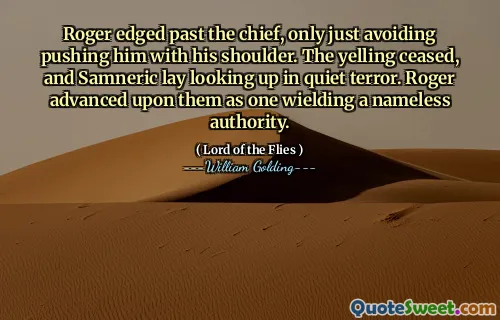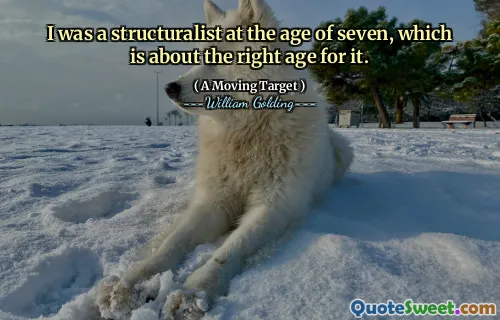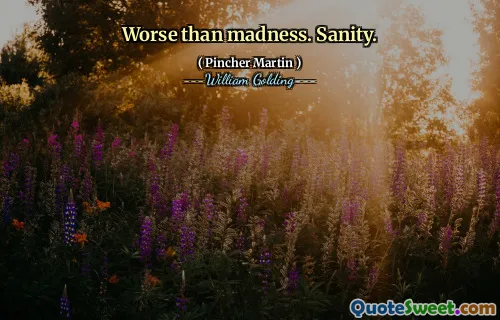William Golding was an influential English novelist, best known for his classic work "Lord of the Flies," which explores the darker side of human nature through the story of boys stranded on an uninhabited island. Born in 1911, Golding's experiences during World War II shaped his understanding of humanity's capacity for brutality and savagery, themes that permeate his writing. His literary career began in the late 1950s, and he received widespread acclaim for his insight into moral and social issues. Golding's works often delve into philosophical questions about civilization and the inherent conflict between the civilized self and primal instincts. "Lord of the Flies" serves as a cautionary tale about societal breakdown, illustrating how quickly order can devolve into chaos when left unchecked. Throughout his life, he continued to write, producing several other novels, plays, and essays that contribute to his legacy as a significant literary figure. In recognition of his literary contributions, Golding was awarded the Nobel Prize in Literature in 1983. His unique ability to illuminate the complexities of human behavior has left a lasting impact on literature and continues to resonate with readers today. Golding's exploration of themes such as the loss of innocence and the struggle between good and evil remains relevant, encouraging reflection on the nature of humanity in both historical and contemporary contexts.
William Golding was an acclaimed English novelist famous for his profound insights into human nature. His most notable work, "Lord of the Flies," reflects the struggles between civilization and savagery among a group of boys stranded on an island.
Born in 1911, Golding's experiences in World War II influenced his view of humanity's darker aspects, shaping his narratives that often feature moral dilemmas and philosophical questions about civilization.
Golding received the Nobel Prize in Literature in 1983, solidifying his status as a significant literary figure. His exploration of complex themes continues to resonate with modern readers, prompting thought about the essence of human behavior.
More »
Today Birthdays
1955 -
Max Lucado
1946 -
John Piper
1842 -
William James
1907 -
Abraham Joshua Heschel
1887 -
Aldo Leopold
1755 -
Alexander Hamilton
1976 -
Alethea Kontis
1971 -
Mary J. Blige
1825 -
Bayard Taylor
1943 -
Jim Hightower
1885 -
Alice Paul
1923 -
Carroll Shelby
1928 -
David L. Wolper
1954 -
Kailash Satyarthi
1972 -
Amanda Peet
1946 -
Naomi Judd
1970 -
Malcolm D. Lee
1955 -
Christian Marclay
1973 -
Rahul Dravid
1987 -
Jamie Vardy
1942 -
Clarence Clemons
1992 -
Fatima Sana Shaikh
1948 -
Larry Harvey
1930 -
Rod Taylor


